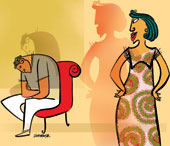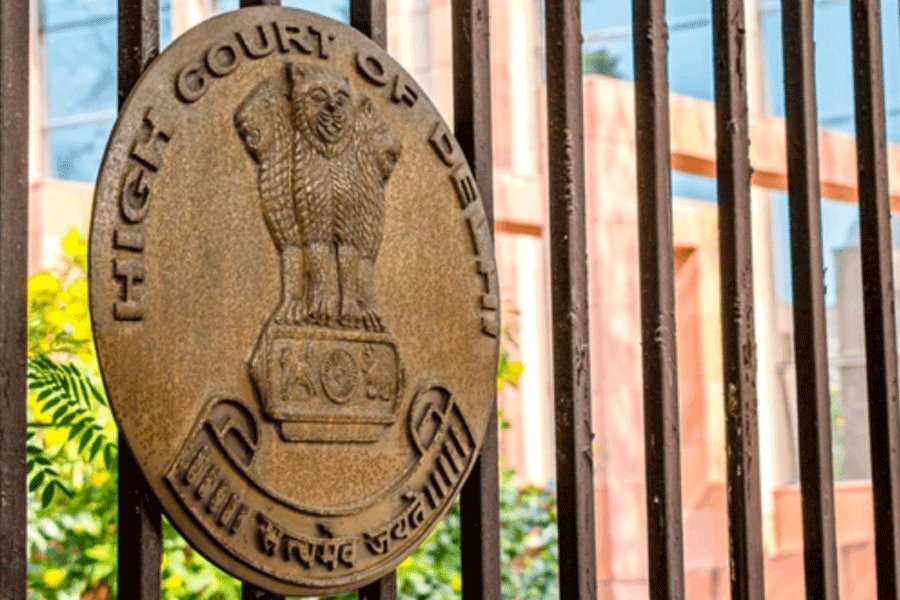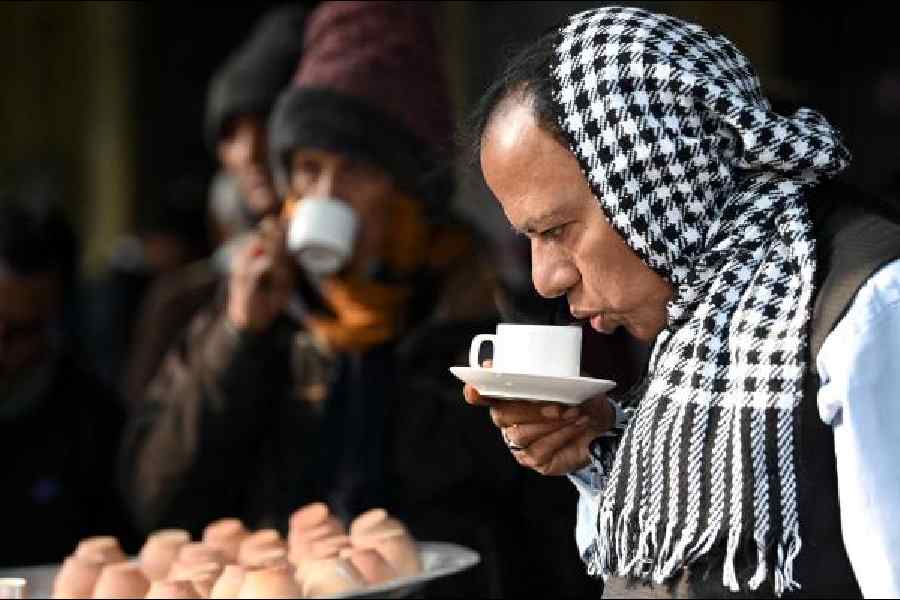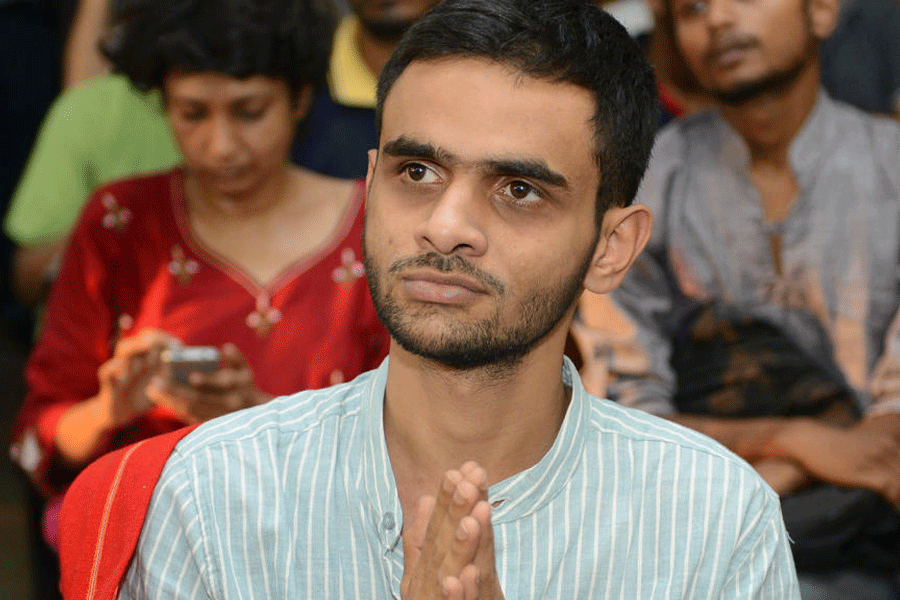 |
Manohar Gangurde, 26, killed himself by swallowing poison in Mumbai last year because he couldn’t bear being ‘tortured’ by his wife any more. The trouble started when he lost his job and his wife and her family members subjected him to harassment of every conceivable kind.
This is one of the very rare instances of domestic violence against men that make it to the media. Even when they do, they are never treated with the same kind of seriousness shown towards violence against women. They get media attention only if a big name is involved, as happened in the case of Rebekah Wade, editor of UK’s best-selling tabloid The Sun, who was arrested last month for allegedly assaulting her husband.
So how serious can it be when men are at the receiving end of domestic violence? Take P. Barman, who teaches electrical engineering at a premier Calcutta college. He had to suffer mental and physical torture by his wife because he refused to leave his ailing mother and live separately. His wife used to pour boiling water on him. She complained to a women’s organisation that she was being tortured by her husband. Consequently, Barman was beaten up by members of the organisation.
Prafulla Sen, another battered husband, likes to call himself a “victim of the discriminatory practices of the law.” His wife is “irascible, addicted to alcohol and has had illicit relationships,” he says. Sen put up with her for 14 years because he thought that a divorce would affect his 10-year-old daughter. But one day when he returned from work, he found that his house was being emptied by his wife and she had locked his 85-year-old mother out of the house. Sen immediately lodged an FIR with the police. “No one from my neighbourhood came to help me,” he says. However, a few days later, Sen was arrested under Section 498 A when his wife complained that he was subjecting her to mental torture. What followed was a long court battle. During that period, his wife “had an affair” and forced his daughter to testify against him, says Sen.
Lawyers feel that there is now a greater acceptance in society of the fact that women can be as guilty of abuse as men. Says Joy Sengupta, criminal lawyer, Calcutta High Court: “Earlier, assaulting and brutalising the spouse used to be the exclusive domain of the husband. It is not so now. We do come across allegations like the wife hiring goons to beat up her husband and throw her in-laws out of the house.”
For men, though there is no equivalent of a special women’s cell, there are several organisations in the country that provide a platform for harassed husbands to voice their grievances. Platforms like the Pirito Purush Pati Parishad (Forum for Harassed Husbands) in Calcutta and Akhil Bharatiya Patni Virodhi Morcha (All-India Anti-wife Front) in Delhi offer support, legal or otherwise, to men. Interestingly, Calcutta’s Pirito Purush Pati Parishad is headed by a woman, Aruna Mukherjee, a senior advocate at the Calcutta High Court. Says Mukherjee, “I have been practising law for many years. I have seen innumerable cases where women misuse Section 498 A. I always felt that there should be a forum for men. Hence, the Parishad was conceived. Women do cause great harm to men and contribute significantly to the breakdown of marriages.”
Mukherjee identifies some principal causes of harassment. These could range from having extra-marital affairs to making tough demands on their husbands. Agrees Ram Prakash Chugh of the Patni Virodhi Morcha that was founded in 1988. “Many of them misuse dowry laws to punish their husbands and in-laws,” he says.
Sociologist Bula Bhadra believes that domestic violence against men is yet to become a public issue. “If we go by the numbers, it’s still a private issue. I believe anyone can be abusive. We need to look at the bigger picture. We have to take into account the power relations ? whoever is in the dominant position in a family structure, be it a man or a woman, will tend to use his or her power to inflict hurt on the other. But as women are gaining more power today, we can see a ‘fear psyche’ working among men.”
Mukherjee feels that more and more men are now coming forward to seek counselling. “A man is afraid of being called weak if he admits in public that he has been assaulted by his wife,” she says.
Chugh claims that since his organisation was formed, about 20,00,000 aggrieved men, including judges, bureaucrats and army officers, have got in touch with him. “They are so scared that they can’t give their names or come out in public,” he says.
Though the misuse of Section 498 A is believed to be the main culprit behind the harassment of men, the legal situation is not entirely hopeless. Says Sengupta. “It’s not that easy these days to arrest a man and his family members on the basis of just a complaint lodged by his wife. Unless the investigating agency is absolutely certain of a prima facie case against the accused, he should not be put to unnecessary harassment or incarceration.”
Meanwhile, the battle between the sexes continues.
(Some names have been changed on request.)
Additional reporting by Anirban Das Mahapatra in New Delhi.










